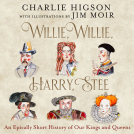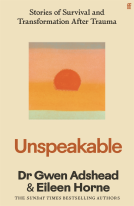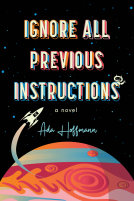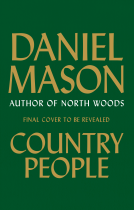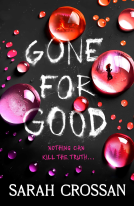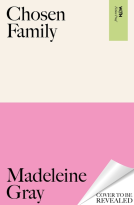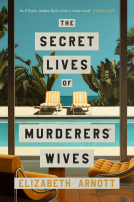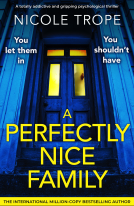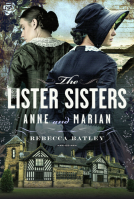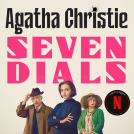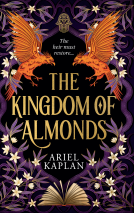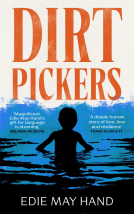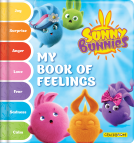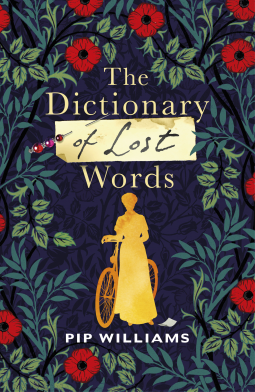
The Dictionary of Lost Words
The International Bestseller
by Pip Williams
This title was previously available on NetGalley and is now archived.
Send NetGalley books directly to your Kindle or Kindle app
1
To read on a Kindle or Kindle app, please add kindle@netgalley.com as an approved email address to receive files in your Amazon account. Click here for step-by-step instructions.
2
Also find your Kindle email address within your Amazon account, and enter it here.
Pub Date 8 Apr 2021 | Archive Date 15 May 2021
Random House UK, Vintage | Chatto & Windus
Talking about this book? Use #TheDictionaryofLostWords #NetGalley. More hashtag tips!
Description
Esme is born into a world of words. Motherless and irrepressibly curious, Esme spends her childhood in the Scriptorium, a garden shed in Oxford where her father and a team of lexicographers are gathering words for the very first Oxford English Dictionary.
Esme's place is beneath the sorting table, unseen and unheard. One day, she sees a slip containing the word bondmaid flutter to the floor, unclaimed. Esme seizes the word and hides it in an old wooden trunk that belongs to her friend, Lizzie, a young servant in the big house. Esme begins to collect other words from the Scriptorium that are misplaced, discarded or have been neglected by the dictionary men. They help her make sense of the world.
Over time, Esme realises that some words are considered more important than others, and that words and meanings related to women's experiences often go unrecorded. She begins to collect words for another dictionary: The Dictionary of Lost Words.
Set when the women's suffrage movement was at its height and the Great War loomed, The Dictionary of Lost Words reveals a lost narrative, hidden between the lines of a history written by men. It's a delightful, lyrical and deeply thought-provoking celebration of words, and the power of language to shape our experience of the world.
Advance Praise
'Inspired by a wisp of a fact – a single word accidentally omitted from the Oxford English Dictionary – Pip Williams has spun a marvelous fiction about the power of language to elevate or repress. This is a novel that brings light not only lost words, but the lost stories of women's lives. It is at once timely and timeless.' Geraldine Brooks
'In the annals of lexicography, no more imaginative, delightful, charming and clever book has yet been written. And if by writing it Pip Williams has gently rapped my knuckles for wrongly supposing that only white English men led the effort to corral and codify our language, then I happily accept the scolding. Her wonderfully constructed story has helped entirely change my mind.' Simon Winchester, author of The Surgeon of Crowthorne: a tale of murder, madness and the Oxford English Dictionary
'What a novel of words, their adventure and their capacity to define and, above all, challenge the world. There will not be this year a more original novel published. I just know it' Thomas Keneally
Available Editions
| EDITION | Other Format |
| ISBN | 9781784743864 |
| PRICE | £14.99 (GBP) |
| PAGES | 336 |
Average rating from 193 members
Featured Reviews
 Judith S, Reviewer
Judith S, Reviewer
Set in the early twentieth century Esme has been brought up by her father, a lexicographer working on the first Oxford English Dictionary spending most of her early years under the table where they work, collecting words as other children do the time might collect stamps. Words and their meaning are everything to her and as she gets older she becomes more heavily involved in the work of the lexicographers and also in women’s suffrage leading her to start collecting the “women’s words” that are not permitted to feature in this very masculine dictionary.
This is a delightful historical novel covering some of the major political issues of the period with the tragedy of the First World War and the fight for women’s suffrage playing a prominent role but never preaching. Williams gets right inside the head of the young Esme bringing her to life in a way few authors manage. Even though it made me cry I’d strongly recommend it as a lovely, escapist book to cosy up with on a chilly afternoon to take your mind off your worries.
 Irene M, Reviewer
Irene M, Reviewer
I've been wondering how I can write a review that does justice to this extraordinary book. My love of words drew me to it and time spent with Esme from her early childhood in the Scriptorium was a delight as she learned from her father and other lexicographers about the joy to be found in discovering new words and the complexity of defining them.
Pip Williams writes as convincingly about the rarefied academic world of Oxford as she does about the big wide world of the women's suffrage movement and WW1. I cannot think of any author who writes so movingly in so few words. At times we know something terrible has happened without the event being described, but I could imagine the sorrow it caused all too painfully and had to stop and give myself time to think before continuing reading.
I would like to say something about each and every one of the characters who all come vividly to life, the minor as well as the major ones, but that would take much too long, so I'll stick to just a few. Esme feels like a friend right from the start and we witness her growing and changing through all the joy and sorrow that comes her way; her father watches over her carefully and is painfully aware of his inadequacy at times when he has to try to replace the mother she never knew: both academic Ditte and servant Lizzie impart much wisdom to Esme, both in her childhood and her adult life. Then there is Mr Sweatman, a minor character, but whenever he appeared I found myself wondering if there is any kinder or more considerate man in any work of fiction. And the comedy duo who work briefly in the Scriptorium are hilarious, bringing some lightness and humour to this serious-minded place.
It came as a great surprise to me to learn from the author's note that she used to have trouble with words as she writes so eloquently with compassion, sensitivity and humour and has produced a world that became mine totally. This is a novel that will stay with me.
Is this perhaps my book of the year? No, it's my book of the decade.
 linda e, Librarian
linda e, Librarian
Being a librarian and therefore a book and word lover, dictionaries are one of the loves of my life. so I was looking forward to this and it did not disappoint. . A clever novelisation of the process of writing and publishing the first full OED against a backdrop of women's suffrage and WW1. it was well researched and the invented characters worked well against the real life ones. a thought provoking read with excellent characterisation.. some romance, but never mawkish..
4.5 stars
The Dictionary Of Lost Words is historical fiction based around the creation of the Oxford English Dictionary. Beginning in the late 1800s, this is the author’s imagined story from a woman’s point of view.
Esme is raised by her father, a gifted lexicographer. While he works each day on words for the new dictionary, young Esme often sits under the table at the scriptorium. It’s just a garden shed in Oxford, but to Esme and the wordsmiths it is a place of learned reverence.
Each word begins on a slip of paper with its definition. Most words had several definitions, which needed to be verified, then edited, before a final decision made about inclusion or exclusion from the new dictionary.
‘Words are like stories. They change as they are passed from mouth to mouth; their meanings stretch or truncate to fit what needs to be said.’
Author Pip Williams has considered the methods of censorship around the words which made it to the final publication and those which did not, as well as considering how new words enter our vocabulary during our lives. Set against the background of the suffragette movement and World War One, Esme’s fascination with words drove the story forward. As she grew up she collected words that were used in everyday life, particularly those used by or about women, along with regional and slang words. Many of these words never made it into the dictionary, so Esme made her own collection of them so that they weren’t forgotten.
I liked this story, particularly the detailed days in the scriptorium. The slips of paper for each word conjured lovely pictures in my mind of beautiful old papers tied with string and slotted into the pigeon holes which kept them safe. I can only imagine the disaster if there had been a fire. I recommend this to anyone who has an interest in words and their origin or an interest in the creation of The Oxford English Dictionary.
 Reviewer 509555
Reviewer 509555
This really is a wonderful book, it is quite unlike anything I have read for some time and tells the story of Esme and her love of words. It is illuminating, sad, educational and enjoyable all at once. The writing is beautiful and I really loved it. Thank you.
 Jannelies S, Reviewer
Jannelies S, Reviewer
Where to begin to tell you about this wonderful and heartwrenching story? Maybe at the end - I recommend to read the author's note first. It will especially give readers who have no previous knowledge about the OED, a good start. And o yes: try and find the movie The Professor and the Madman, based on the book The Surgeon of Crawthorne by Simon Winchester. The movie is excellent and when reading the book it helped me visualise 'the Scrippy' and other places.
The author did a formidable job in creating Esme, a girl at first, who we see growing up in the company of words, words and more words. I'm jealous... I have a picture of the Bodleian library as my screen saver and my idea of heaven is being there surrounded by books. The making of the OED was mostly hard work, and not always fun but I can see how it could make people proud to be able to work on it. As Gareth, my grandfather was a compositor - he even won prizes for it - and with what I know now, I would love to be able to ask him more about his work. Sadly he is no longer among us.
I had to shed a tear at the end of the book - it is such an insightful, heartwrenching and true story. I'm forever grateful to the author that she undertook this magnificent work and gave us this book.
Thanks to Netgalley for this digital review copy.
This was the first of what I assume will be many rereadings of this book.
If you love words, the idea of a book set around writing the famous Oxford Dictionary from late 19th century to the First World War is the best love letter to words and language.
Esme loses her mother at a young age, and often accompanies her father to the scriptorium where the first part (A/B) of the Oxford Dictionary is being written. The words and their meaning are written on little slips and sitting under her fathers table she starts collecting them. And realizing at a young age that because the words are researched and accepted by higher class men, a lot of words will never be considered. Even now I believe we still have a large lexicon of white wealthy words and I'm very happy platforms like Urban Dictionary have sprung up.
A cast of misfits come together and the book is excellently researched and given shape between new inventions, the suffragette movement and the world of the Oxford Dictionary. Esme finds her own voice and starts collecting "women" words and words used in other parts of society.
Oh and get a tissue ready for the last bit of the book.
I look forward to reading more of her work in the years to come.
 Jackie M, Book Trade Professional
Jackie M, Book Trade Professional
I thoroughly enjoyed this warm tale of how the Oxford English Dictionary was produced. Fascinating detail based in fact, sympathetic and interesting characters and, of course, the theme of injustice towards women. One day I'll read a book about a world in which we are equal!
 Bethannia N, Educator
Bethannia N, Educator
Sat watching the sunset on 2020 atop a mountain, finishing this absolute beauty of a book. Inspiring, intelligent & gives a voice to the silenced. Endearing characters weave together historical fact and the language of culture across continents. If you love words, you will love this!
This was lovely! The story of the creation of the dictionary is fascinating and the female angle is really interesting and important. The timeline of the suffragettes and the war added depth and detail.
 paula w, Reviewer
paula w, Reviewer
Brilliant. Partly based on a true story. Anyone who likes language will enjoy this book about the characters ho shaped the Oxford dictionary. In a time when the written word was exotic and letter writing a thing of beauty as well as the only way to communicate over distance.
 Emily N, Book Trade Professional
Emily N, Book Trade Professional
I don't think I have the words to say how much I loved the utterly beautiful and totally wondrous The Dictionary of Lost Words by Pip Williams. I sobbed throughout and I felt each of Esme's successes and losses most keenly, but if you ask me what it's about I'd struggle to tell you. It's about beautiful relationships (family, friends, lovers), it's about suffrage, it's about loss, but most of all, it's about the power of words, and wow, what power are in these words. There's so much I want to say, but I don't want to give any spoilers. It's not out until April but oh my goodness preorder it and devour it (and then tell me how much you love it please!). Definitely one of my favourite books of the year. Thank you @netgalley for this incredible arc.
 Janet H, Reviewer
Janet H, Reviewer
A fascination blend of fact and fiction. In 1857 Dr James Murray, a resident of Oxford and a great believer in the English language and words, was asked to produce a New English Dictionary.
We meet him and his team of researchers, working in an outbuilding in his garden, in February 1886., and are busy finalising the first book comprising A and B. His right-hand man, Mr Nichols (a widower), often has his young daughter Esme with him and she becomes a central figure in this story. When not in “The Scriptorium”, as the building is known, she can often be found in the kitchen of the Murray house with Mrs Ballard, the cook, and Lizzie, their maid. Between them they become ‘mother’ and ‘older sister’ figures.
Esme, or Essymay as she is fondly known, is fascinated by the words that are being investigated. They are always written on special sized slips of paper which are often dropped and she delights in gathering them up - and occasionally pocketing one to keep.
The years pass with highs and lows for Esme, who at one time needs to leave Oxford and spends several months with her godmother, Aunt Ditte. Volumes of the dictionary continue to be published, the Suffrage movement is busy with demonstrations and finally Esme finds love, but will it last? Readers, don’t stop at the Epilogue - please ensure that you read all the author’s notes at the end - they are absolutely fascinating and most informative.
A book I anticipated loving from the description and I was not disappointed. A gentle, simple introduction to Esme at the beginning of her life builds into a tale with a raft of characters whose lives unfold with pace and drama, encompassing massively important events of the 20th century. A glorious mix of fact and fiction worked from the creation story of the Oxford English Dictionary, digging deeply into societal attitudes towards woman. Delighting and despairing for the characters in turn, its the first book in a long while that had me reading past bedtime because I needed to know how things would work out. I love words and language so the dictionary device satisfied. And I love a book that makes me think so the questions left about feminism - the ways to tackle injustice and the true extent of progress made means I'm rating this book as a definite hit.
 Sandra M, Librarian
Sandra M, Librarian
It starts with a child’s view of the world through language, and expands into a lifetime love of words and meaning.. from late nineteenth century into times of war and the women’s movement, the struggle to find a voice and to make a contribution to the dictionary is all consuming.in this story. Many of the characters have a place in history, although it feels such a warm and personal story, that it is told with humour and a compelling truthfulness.
I was totally hooked, and didn’t realise until the end, that so much of it is based on fact. It had never occurred to me that women's’ involvement in such an academic pursuit was to say the least not to be encouraged. , As the author says, the dictionary was compiled by men and for men. By coincidence I read in the paper the other day that a particular derogatory definition of ‘Essex girl’ was taken out of the Oxford English Dictionary after a long campaign only recently. So it goes on.
This was a thoroughly enjoyable read, and I a wonderful mix of the historical and the personal.
'The Dictionary of Lost Words' was a true joy to read, so well-researched and a fascinating interweaving of fictional characters with fact in a timeline of change and loss. I was sorry to reach the end of the book.
Pip Williams presents readers with valuable insights into the rarefied atmosphere of oxford, and the limited roles women were permitted to perform in the male-dominated academic world of the late 19th and early 20th century,
I was impressed with the delicate yet explicit expression of class differences and the 'service' that many women were obliged to adopt, and the developments towards enfranchisement of the times. I hope Pip Williams will continue to explore our world and history with this engrossing mix of story and history.
The best fiction book I’ve read in 2020! I absolutely adored this book from start to finish and got completely lost in the words and story. It made me laugh, cry, feel inspired, feel angry, feel distraught, feel proud and made me loose a lot of sleep as each evening, “just one more page” quickly turned into several more chapters!
‘The Dictionary of Lost Words’ is a historical fiction book about Esme, a girl who becomes involved in creating the first Oxford English Dictionary, and the course of her life. With a backdrop of the women’s suffrage movement, the turn of the century and the First World War themes of gender, class and how our experiences create a lens through which we view, interpret and understand the world are all addressed. What I especially loved about this book was the exploration that the words we use are intrinsically linked to gender and class and that dictionaries and ‘academic’ records of etymology only capture the white, male, middle and upper class use of words and miss out so much and how even the meanings of the same words can change depending on the person using it. What makes one more important than another? So much food for thought in this!
Now I’ve just reached the end I’m off to reread it again because this book is extraordinarily brilliant!
Thanks so much to NetGalley and the publisher for sending me an ARC in exchange for an honest review.
 Brenda P, Reviewer
Brenda P, Reviewer
What can I say about The Dictionary of Lost words, apart from the fact that it is an exceptional book that I will remember for a long time and recommend over and over again to book lovers. It is a must read so please buy a copy of the book and get lost in the history of words. I will definitely be buying a paper book copy to read again. Thanks you Pip Williams for such a beautiful sorry, thank you to the publisher and Netgalley for the arc.
 Rosie V, Librarian
Rosie V, Librarian
A beautiful, astounding and quite profound book. Captivating from beginning to end. The relationships and so well developed, The thread of a woman's place in recorded history runs throughout. Very sad to have finished reading it.
 Educator 667783
Educator 667783
This is a fantastic book, all about words and how these can change and influence. Esme spends many hours under her Da’s table in the Scripitorium, where words and definitions are sorted into pigeon holes before being entered into Dr Murray’s dictionary. From this position, Esme learns to love words and their meanings. ‘Words are like stories...they change as they are passed from mouth to mouth; their meanings stretch or truncate to fit what needs to be said.’ She starts to collect ‘lost’ words which float down under the table and these she files away secretly under the bed of Lizzie, a young house maid working at the big house.
As Esme grows up, she starts work at the Scriptorium, running errands around Oxford, for the male assistants. She does, however, still collect words and their meaning, which are added to those hidden ones under the bed. These are the words from women and the illiterate, the ones which are not written down as they have not been printed and published. Lizzie asks her ‘...what’s the point, half the people who say these words will never be able to read them.’ ‘Maybe not,’ Esme answered her, ‘but their words are important.’
Esme becomes involved in the women’s rights movement and learns more about the inequalities between men and women. She states, ‘I realised that the words most often used to define us were words that described our function in relation to others. Even the most benign words – maiden, wife, mother – told the world whether we were virgins or not. What was the male equivalent of maiden? I could not think of it. What was the male equivalent of Mrs, of whore…’
The book ends decades after it began and much has changed in the world. It is a story of love, forgotten people, knowing your place in life, fighting for a better world and giving a voice to the invisible members of society.
 Librarian 743382
Librarian 743382
When I don't find the right words, I am assailed by an indescribable melancholy. As if there is no joy without being able to express it in words. Or sadness. Or astonishment. Or anger. As if everything in my head doesn't exist without the ability to give it a voice.
Then I think about it and I remember that I'm in good company. And that Semiotics, Linguistics and the History of Language have really marked me.
Pip Williams, author of The Dictionary of Lost Words, claims that the genesis of her book is linked to two simple questions: is it possible for words to mean different things depending on the gender of the person using them? And if they do mean different things, is it possible that nuances have been lost in the attempt to define them?
In The Dictionary of Lost Words, we follow the story of Esme, an extremely curious child who spends her childhood in the Scriptorium, surrounded by a group of lexicographers who are busy compiling the first Oxford English Dictionary. Soon Esme begins to question the value of words and to collect all those that are considered unimportant, generally related to the female world or of popular origins.
I really enjoyed the book and not out of pure professional bias. I feel as if I have visited the Scriptorium, sifted through the cards covering every available inch and left various notes. I recognise Esme's curiosity, her reasoning and her concerns as if they were my own.
I enjoyed the blend of fact and fiction. I find it hard to resist books based on facts and characters that really happened and existed. Its topicality is somewhat disarming.
It is a book that intrigued, amazed and moved me.
Thank you to NetGalley and the publisher.
Readers who liked this book also liked:
Francesca De Tores
General Fiction (Adult)
Elizabeth Arnott
General Fiction (Adult), Historical Fiction, Mystery & Thrillers
Agatha Christie
General Fiction (Adult), Historical Fiction, Mystery & Thrillers
Carine Laforest;
Children's Fiction
